Search
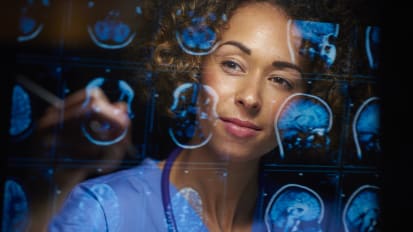 Video
Video
Update on Brain Metastases: Navigating Treatment Decisions, Reducing Long-Term Harms
In three parts, UCSF neuro-oncology specialists present the latest on managing brain metastases. Video
Video
UCSF Musculoskeletal Center is Redefining Pain Management and Non-surgical Treatments for Complex Conditions
At the UCSF Musculoskeletal Center, innovative research is changing how we approach musculoskeletal conditions. By going beyond traditional treatments and exploring cutting-edge technology, the center is pioneering new solutions to complex health issues affecting millions. Video
Video
All About Allergies: Successful Diagnosis and Treatment
This breakdown of common allergies provides clarity on which patients to test and which tests to choose; how to effectively manage chronic allergies, such as allergic rhinitis; as well as signs and solutions for the many types of adverse food reactions. Video
Video
Anal Cancer: A Primary Care Guide to Risks and Screening
Infectious disease specialist Cristina Brickman, MD, MSCE, explains how common anal cancer really is, which HPV types are associated, which patient populations should be screened and when to start – and when to refer to a specialist. Videos demonstrate proper technique for anal cytology collection and digital anorectal exams.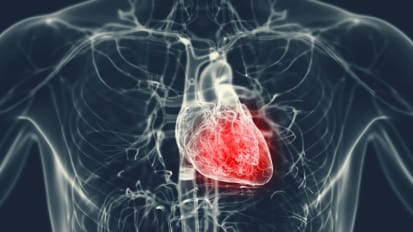 Video
Video
Currents in Myocarditis: A Fresh Look at Causes, Classification and Care
COVID-19 infections and vaccines, as well as certain cancer treatments, can play roles in myocarditis – whose incidence has increased about tenfold in recent years.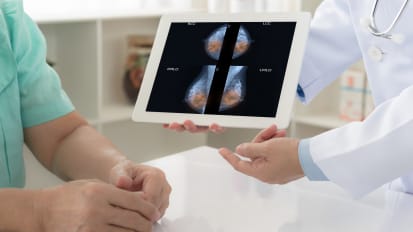 Video
Video
Breast MRI and Advanced Breast Intervention
Bonnie Joe, MD, PhD, discusses how breast MRI is performed, common indications for breast MRI and advanced methods for biopsy and pre-surgical localization of tumors. Video
Video
Keeping a Luster in the Golden Years: What Geriatricians Bring to Aging Patients
The complex and broad-ranging needs of older adults can be difficult to meet in the primary care setting – or by specialists seeing them for a single disorder Video
Video
COVID Fear and Heart Attacks: Addressing New Obstacles to Care
COVID fear has worsened outcomes for the most dangerous type of heart attack. Interventional cardiologist Krishan Soni, MD, discusses how to respond to the new obstacles and reestablish safe, efficient pathways to lifesaving treatment. Video
Video
Our Response to COVID-19: Lessons From the AIDS Epidemic
Renowned UCSF HIV/AIDS expert Paul Volberding, MD, who helped pioneer antiretroviral therapy, shares his insights on how the medical community can best respond to the current pandemic. He explains similarities and differences in the health care challenges and emphasizes the value of collaboration.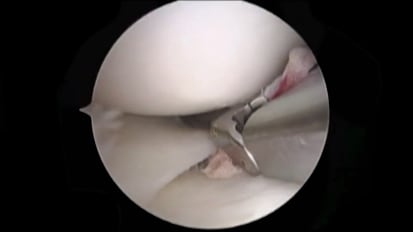 Video
Video
Meniscus: Intrasubstance Tear
Nicholas Colyvas, MD, presents a case study of 28-year-old hiker and cyclist who sustained an intrasubstance tear in her medial meniscus.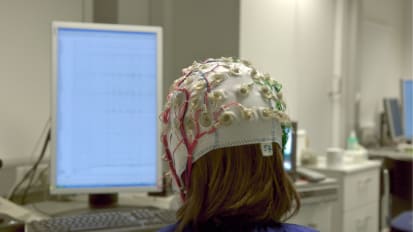 Video
Video
Assessing First Seizures: Steps for Primary Care Providers
Neurologist Manu Hegde, MD, PhD, breaks seizures into basic classes and puts the numerous epilepsy syndromes into three useful categories. He discusses how to take better histories; what to check for during physical exams; and what to know about antiseizure drugs, including specific side effects.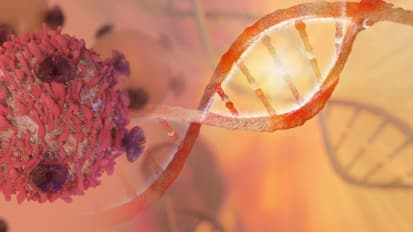 Video
Video
Updates from the American Society of Clinical Oncology (ASCO) 2017
A June 2017 Bay Area Breast Cancer Forum discussion of updates from the ASCO annual meeting, covering PARP inhibitors, germline BRCA mutations, HER2-positive cancer, patient-reported outcomes, immunotherapy and more. Moderator: Dr. Hope Rugo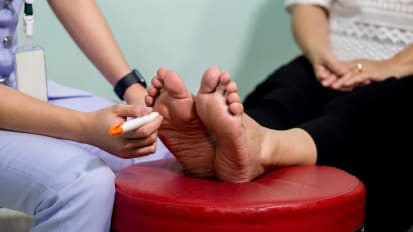 Video
Video
Keep Diabetic Patients on Their Feet: Keys to Identifying Limb-Threatening Issues
In a country where more than 9% of adults have diabetes, Alexander Reyzelman, DPM, discusses the implications for those who also have peripheral vascular disease. Video
Video
A Novel Approach to Aching Knees: How Specialists Are Using Artery Embolization for Osteoarthritis
Many providers have grown weary of offering the same old treatments – physical therapy, steroid injections – to their patients with knee OA, an increasingly prevalent condition that accounts for more than 80% of OA-related chronic pain and disability in the U.S. Video
Video
When the Nose Doesn’t Know: Identifying Types of Smell Loss in the Time of COVID
In this guide to understanding the condition and counseling patients appropriately, rhinologist Jose Gurrola II, MD, covering types of smell loss, the impact on patients’ lives, when to order labs or imaging, expected recovery times for COVID patients, and therapies worth trying. Video
Video
Breast Cancer Treatment Strategies: Experts Break Down the Latest
Reporting from the renowned San Antonio Breast Cancer Symposium, UCSF specialists present new research findings relevant to the complicated decisions made daily in designing treatment plans for individual patients. Video
Video
Cancer Preventive Care: Empower Your Patients to Take Small-But-Significant Steps
Patients worry about cancer but struggle to make lifestyle changes. Here’s how to discuss factors they can control and realistic steps they can take. Video
Video
Primary Care Predicaments: Myopathies, Neuropathies & Neuromuscular Conditions, Oh My!
From ALS to myasthenia gravis to Guillain-Barré syndrome, potentially aggressive neuromuscular disorders can present with a range of nebulous symptoms.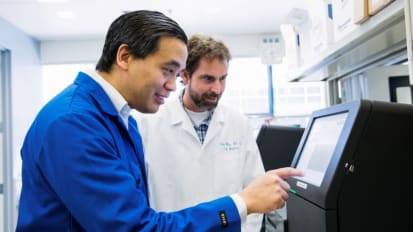 Video
Video
Clinical UCSF mNGS Assay for Diagnosis of Neurological Infections
Despite extensive conventional testing, acute neurological illness in hospitalized patients is difficult to diagnose. Charles Chiu, MD, PhD, discusses an mNGS test that identifies pathogens causing neurological infections from cerebrospinal fluid and how a recent multi-hospital study has demonstrated the clinical utility of this test.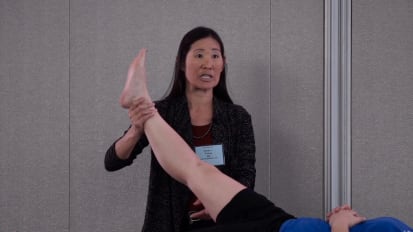 Video
Video
A Lesson in Low Back Pain: Locate the Source
Sports medicine specialist Cindy Chang, MD, demos three tests to perform during a lumbar spine exam, to help you readily detect the main cause of discomfort. She also has a tip on what not to overlook. Video
Video
Common and Complex: Understanding Carpal and Cubital Tunnel for Better Management
In the time of COVID, primary care providers are seeing these complaints – and workers’ comp claims – virtually every day.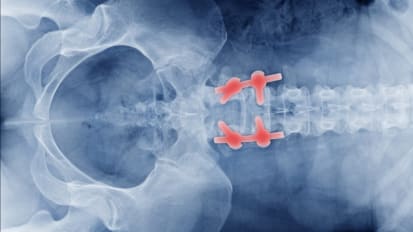 Video
Video
Complex Spine Surgery: Secrets of Successful Closure
Dr. Scott Hansen discusses techniques, options and strategies to stabilize soft tissues and prevent post-op wound complications, even in the most challenging cases. Video
Video
Screening for Cervical Cancer: New Evidence on Options and Outcomes
Gynecologic oncologist Megan Swanson, MD, MPH, deciphers recent changes to cervical cancer screening guidelines and uses the data to illuminate the relative value of test options – Pap smears, detection of high-risk HPV strains, or both tests together.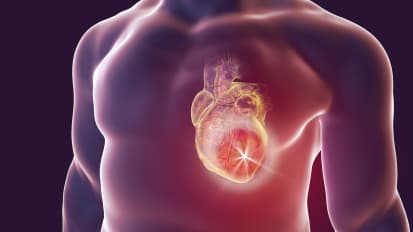 Video
Video
Hypertrophic Cardiomyopathy: What's All the HYPE?
Theodore Abraham, MD, discusses hypertrophic cardiomyopathy (HCM) a genetic heart disease in which the myocardium becomes abnormally thick.


